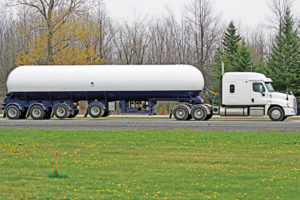NPGA: Hours-of-service modifications logical, allow flexibility
The U.S. Department of Transportation’s Federal Motor Carrier Safety Administration (FMCSA) published modifications to its hours-of-service (HOS) regulations, designed to increase safety on America’s roadways, for commercial motor vehicle drivers.

Photo: kozmoat98/iStock / Getty Images Plus/Getty Images
“The hours-of-service modifications are logical changes to enable drivers to operate efficiently without jeopardizing their safety or the safety of the communities we serve,” the National Propane Gas Association (NPGA) says in an emailed statement to LP Gas about the changes. “None of the regulatory changes increase the maximum driving limit, but each modification allows drivers flexibility to respond to their needs or the unpredictable circumstances that pop up.”
In 2018, FMCSA authored an advanced notice of proposed rulemaking to receive public comment on portions of the HOS rules and, it says, to alleviate unnecessary burdens placed on drivers while maintaining safety on the nation’s roadways. In August 2019, the agency published a detailed proposed rule, which received an additional 2,800 public comments.
“These regulatory modifications enable propane drivers to operate more efficiently, which is critical given the important role of transportation logistics for the timely movement of supplies,” NPGA says.
FMCSA’s final rule offers four key revisions to existing HOS rules that motor carriers and drivers can implement starting Sept. 29:
- Changes the short-haul exception available to certain commercial drivers by lengthening the drivers’ maximum on-duty period from 12 to 14 hours and extending the distance limit within which the driver may operate from 100 air miles to 150 air miles.
- Modifies the 30-minute break rule by requiring a break after eight hours of driving and allowing the break to be satisfied by a driver using on-duty, not driving status rather than off-duty status.
- Modifies the sleeper-berth exception to allow drivers to split their required 10 hours off duty into two periods: an 8/2 split or a 7/3 split – with neither period counting against the driver’s 14‑hour driving window.
- Modifies the adverse driving conditions exception by extending by two hours the maximum window during which driving is permitted.
The short-haul change will save the propane industry $11 million each year in paperwork costs alone, NPGA says.
“A huge amount of credit for the short-haul modification goes to the propane marketers on the Regulatory Task Force at NPGA. It was their idea to modify the short-haul exemption,” the association says.
The task force’s involvement fueled NPGA’s tenacity over the last three years, the association adds, helping to build a coalition of support among other over-the-road industries and press the short-haul modification’s importance to FMCSA.
NPGA created a fact sheet, also available on its member dashboard, to assist members in implementing the new HOS provisions. The complete final rule is available here.
















